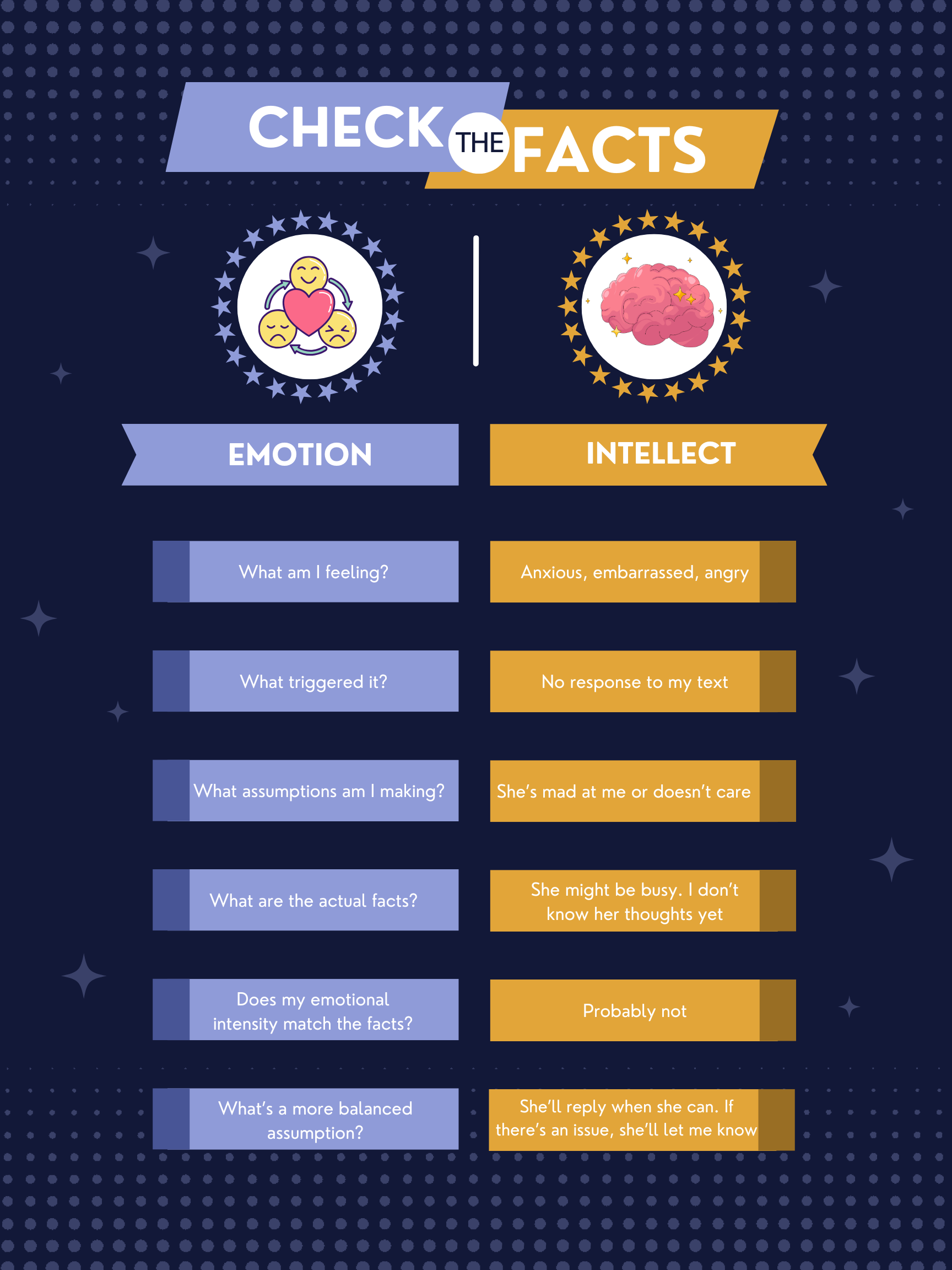The Three-Legged Stool Part 2
In Part 1, we explored how we experience life through three channels: intellectually, emotionally, and somatically (in the body). When all three “legs of the stool” are balanced, we feel more grounded and resilient. But often, we tend to over-rely—or under-rely—on one of those legs. Let’s look at how that plays out.
Over-Relying on the Intellectual
Many people try to think their way through emotional situations, assuming the solution lies entirely in logic. While our brains are excellent problem-solvers, leaning too heavily on intellect can disconnect us from valuable emotional and physical insight.
Imagine you get a frustrating text from a sibling. You analyze every word, draft a detailed response, and send screenshots to a friend for backup. You’re building a solid argument about how right you are and why — but you’re likely becoming more agitated in the process, without realizing it.
At this point, I might gently pause and ask: What are you feeling emotionally? What sensations are happening in your body? Maybe you notice tightness in your chest, shallow breathing, or realize you feel scared of being misunderstood or excluded.
This kind of check-in creates space. Instead of closing in on one way of knowing, it’s like taking the top off a convertible—more air, more perspective.
Under-Relying on the Intellectual
Now imagine this: You send a funny meme to a friend and four hours later, there’s no response. Suddenly, you feel anxious and embarrassed. “Maybe she didn’t think it was funny… maybe she doesn’t want to be friends anymore.” Your anxiety spikes to a 9 out of 10.
This is a classic case of over-relying on emotion and under-relying on intellect.
In DBT (Dialectical Behavior Therapy), there's a tool called “Check the Facts”—a way to bring in the Intellectual leg of the stool. Ask yourself:
Checking in with all three legs—mind, body, and emotion—gives you access to more inner resources. In moments of distress, this balance can help you regulate and respond more effectively. The goal isn’t to shut off any one experience, but to use all three for a fuller, wiser perspective.

